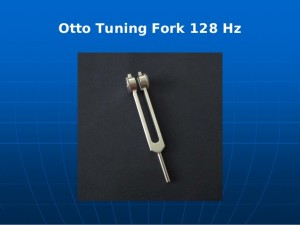Stress is America’s #1 Health Challenge
According to the Centers for Disease Control, stress and stress burnout are now America’s #1 Health Challenge. As you may already know, lowering your stress is good for you! Your blood pressure goes down. You may have less conflict with others, and you also lower your risk for maladies such as:
- anxiety
- cardiac events
- chronic pain
- complicated grief
- diabetes
- irritable bowel syndrome
- weight gain
- weight loss
But when combined with addiction, stress has the potential to sidetrack recovery and trigger relapse. So what can you do to actively address stress How can you observe stress dissolve within a few minutes?
The Relationship between Stress, Addiction, and Their Treatment
When it comes to managing stress and burnout, finding easy ways to stay relaxed and calm regardless of the situation is important! How might you begin? The stress relieving power of Tuning Forks is an easy way to lower your habitual stress levels. But how do Tuning Forks work? Why is stress management so important to people in addiction recovery?
The purpose of this article is to show you simple ways of how Tuning Forks can easily and effortlessly relieve your stress. Then, we discuss signs of stress burnout and how it’s related to addiction. Finally, we invite your questions about this modality in the comments section at the end. In fact, we try to respond to all reader questions with a personal and prompt response.
Why Tuning Forks?
Since ancient times, Tuning Forks have been used to heal and soothe mind, body, and soul. Although you may already be familiar with sound vibrating Tuning Forks, you may not know about kinesthetic forks. These are Tuning Forks that you place directly on your skin or boney areas of your body, after gently tapping on the base of the palm of your hand to start them vibrating.
The Otto tuning fork series was invented by John Beaulieu, N.D., Ph.D., founder of BioSonics, Incorporated. Based upon research conducted in the Neuroscience Lab at SUNY Old Westbury, the scientists there found that the Otto tuning fork series immediately spiked nitric oxide in cell samples.
This is good news for you since your own cells will thank you as you begin to spike your own nitric oxide levels naturally. Doing so helps you improve your healthy well being at the cellular and micro cellular levels.
You may also notice that you start to feel better right away! 
The Importance of the Nitric Oxide Cycle
The BioSonic 128 hertz and 64 hertz Otto series of kinesthetic Tuning Forks naturally spike your nitric oxide cycle when they make contact with your body. Since 1998, over 125,000 research studies have conclusively shown the importance of nitric oxide for proper functioning of most bodily systems. Additionally, many thousands of research studies have demonstrated that having a spiked cyclic nitric oxide cycle is critical for healthy well-being and disease prevention.
Why? Whenever you experience pain, distress, anxiety, grief, etc. your nitric oxide cycle is flatlining somewhere in your body. Conversely, whenever you are feeling ecstatic, happy, without pain or stress free, this means your nitric oxide is spiking.
That is a good thing from a stress and stress burnout standpoint, since spiking of the nitric oxide cycle is desirable and good for you. On the other hand, flatlining of the cyclic nitric oxide cycle, is bad for you health-wise.
Immediate Results
Using the Biosonic Otto series of kinesthetic Tuning Forks helps to jumpstart your nitric oxide levels naturally without any side effects. The best part is that you can easily do this yourself or with the assistance of a friend and begin to immediately get results.
You’ll experience the benefits of having your stress and sense of worry reduced. You’ll also be able to feel the vibrations directly, and many people report experiencing immediate stress, anxiety, and pain relief.
The Connection with Addiction
It goes without saying that usually anything that lowers your habitual stress levels is usually good for you. Healthy behaviors help to improve the quality of your life. Of course, that’s not always true, especially if you’re considering a quick addictive “fix.” Additionally, numerous research studies show that people who use drugs also experience high levels of stress and/or anxiety. In fact, we can say that there is a correlation between high stress and anxiety levels and addictive behaviors: the higher the levels of stress and/or anxiety, the more likely you are to experience relapse or not be able to maintain recovery.
So, it’s important that you manage and minimize your stress and anxiety in your life as a way of staying on track with addiction recovery. Ultimately, if you are trying to reach the recovery stage, then you all already know all too well from experience how stressful and anxiety provoking events and circumstances can trigger addictive binges and episodes.
Burnout and addiction
Stress burnout is a serious condition when you feel that you have “hit a wall” that stops you in your tracks – literally and figuratively. Your habitual levels of exhaustion and fatigue are now off the chart in a debilitating way. Burnout is actually a stress danger zone where your body is warning you that you may be close to physical collapse. You ignore such danger signals at your own peril.
When you’re close to burnout, you dramatically increase the chances of having an avoidable accident or making a preventable critical mistake. For example, you might fall asleep while driving home and crash your car. If you’re lucky you’ll only have property damage to your vehicle; if you’re unlucky you’ll get hurt or hurt someone else or worse. Or, you may unexpectedly your hand because you weren’t paying attention while opening a can or trimming your hedges. And, if you are burned out, you may not properly clean your wound or take it seriously; thus setting yourself up for infection and a trip to the hospital Emergency room.
Additionally, research studies have demonstrated that when you do not sleep for 24 hours or more, if your blood is drawn, you’ll have the same molecules circulating in your system as the blood of someone who has brain damage.
Burnout increases the risk for physical breakdown as well as relapse. So, if you want to improve your chances for maintaining recovery and avoiding triggering relapse, then whenever symptoms of burnout appear in your life, you’ll want to take immediate action to course correct.
Symptoms of burnout
- Extreme exhaustion
- Sleep deprivation
- Insomnia
- Auto immune dysfunction
- Repeated colds
- Avoidable series of accidents
- Affordable series of mistakes
- Mind fog
- Falling asleep while driving
- Falling asleep while operating heavy equipment
- Difficulty with remembering
- Difficulty concentrating
- Easily distracted
To resolve burnout, you need to:
- Stop whatever you’re doing.
- Begin to pay attention to whatever is happening in your life.
- Respond differently by getting extra rest or sleep or modifying your schedule in some important way.
Further, if you are experiencing any of the symptoms of burnout you should check with your healthcare provider or practitioner and seek to address those issues immediately.
Additionally, you can learn more about how the Otto series of Tuning Forks can help you reduce stress and burnout by visiting my website at www.StressFreeNow.info. You can also email me with your questions and I will respond promptly at Dr.Bob@ StressFreeNow.info









Related Posts